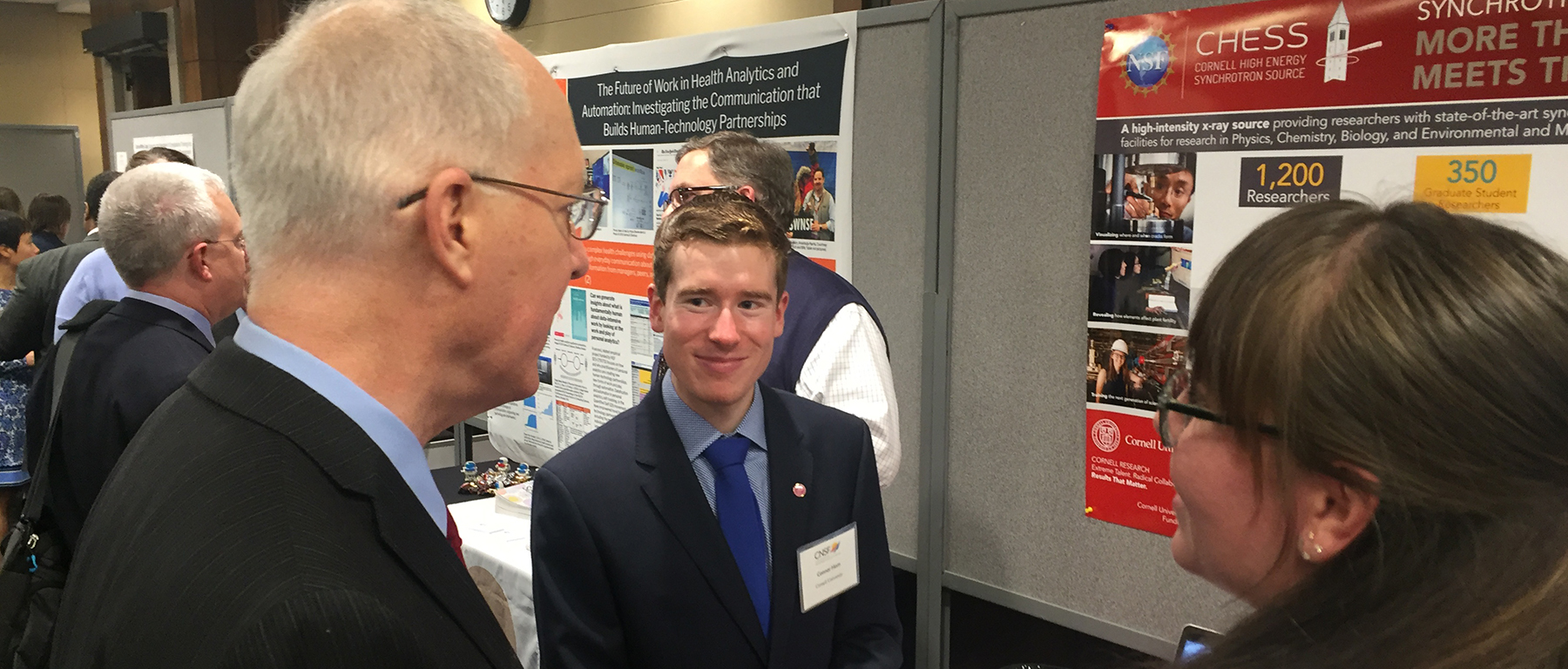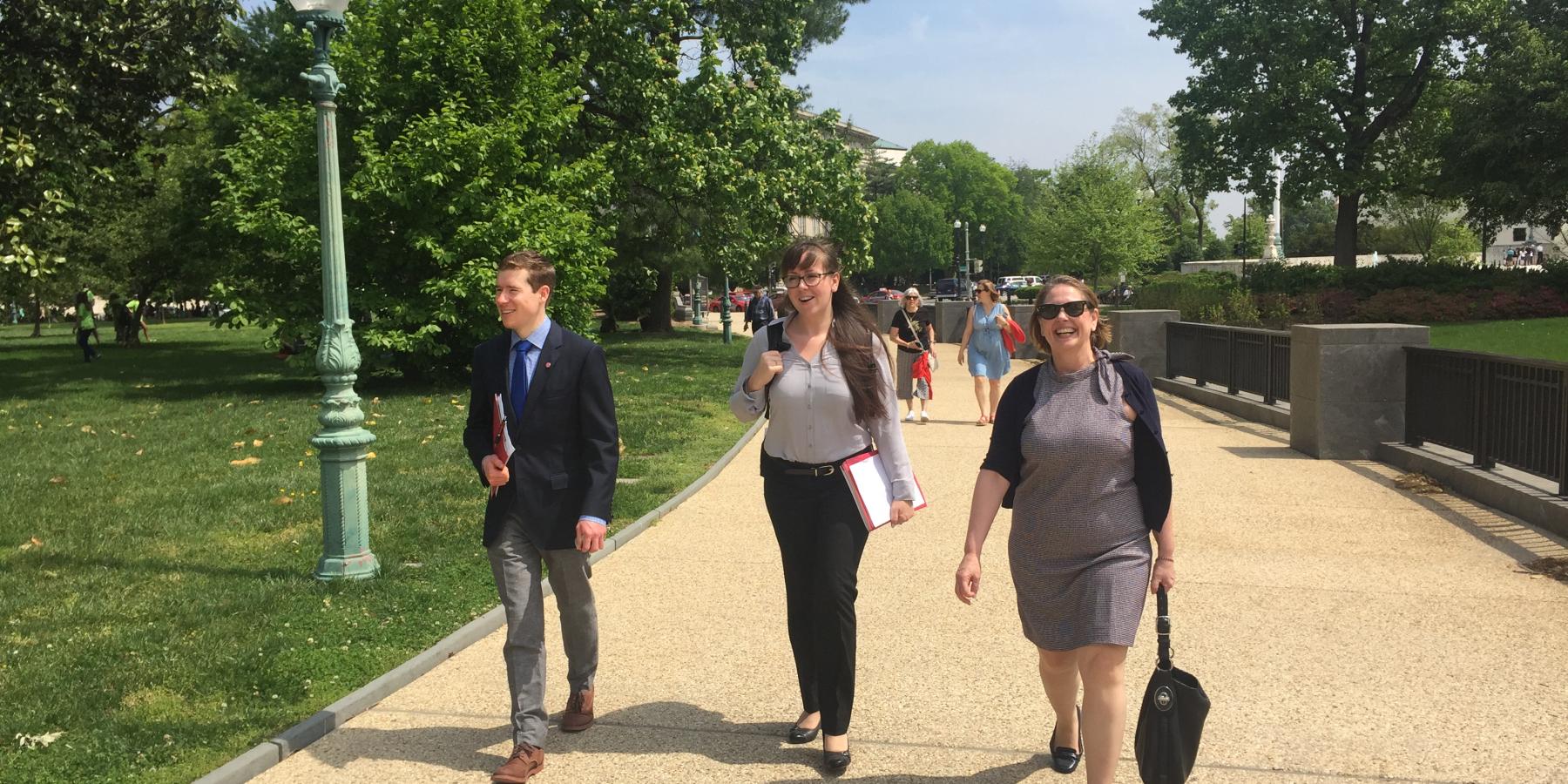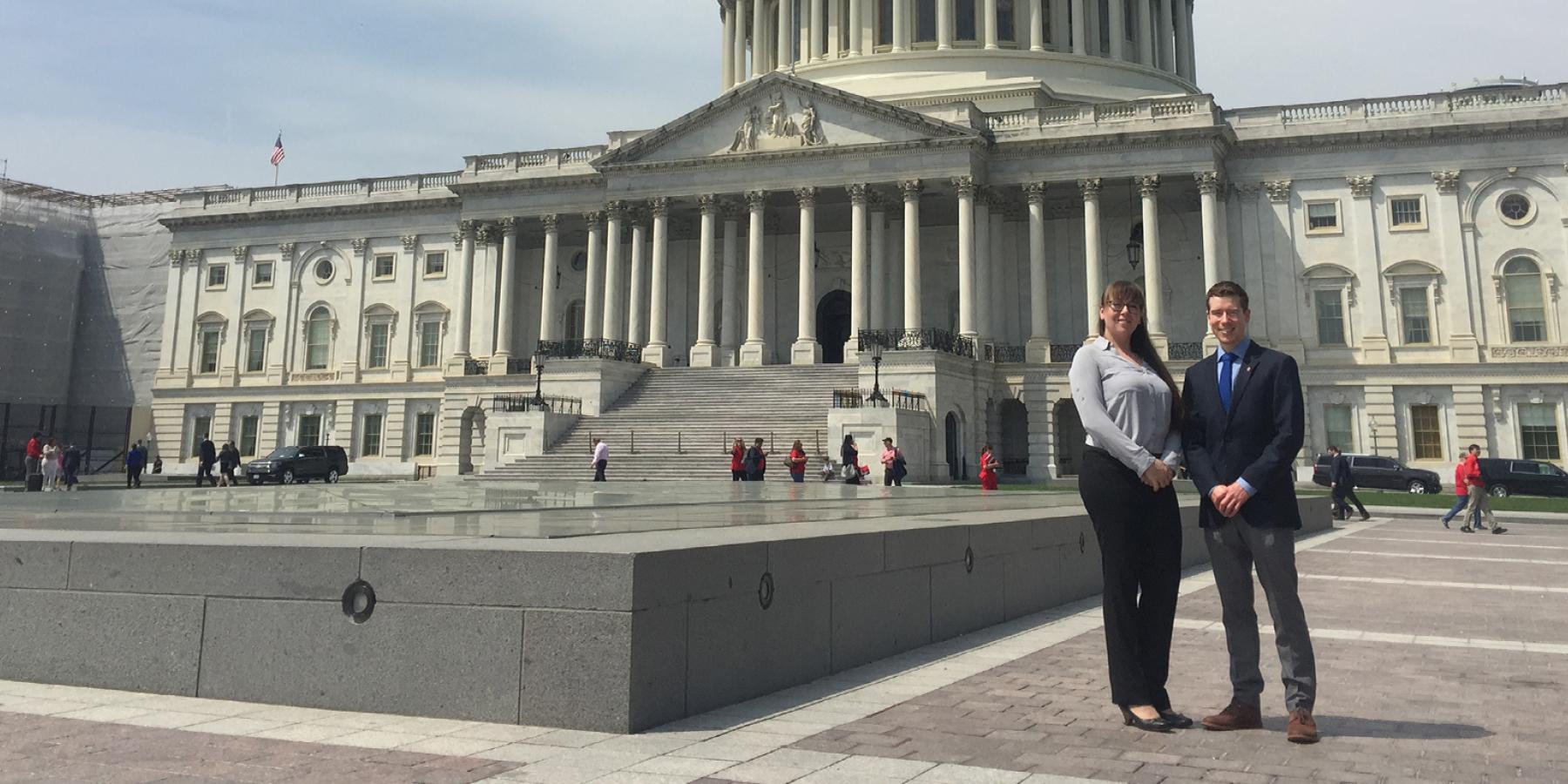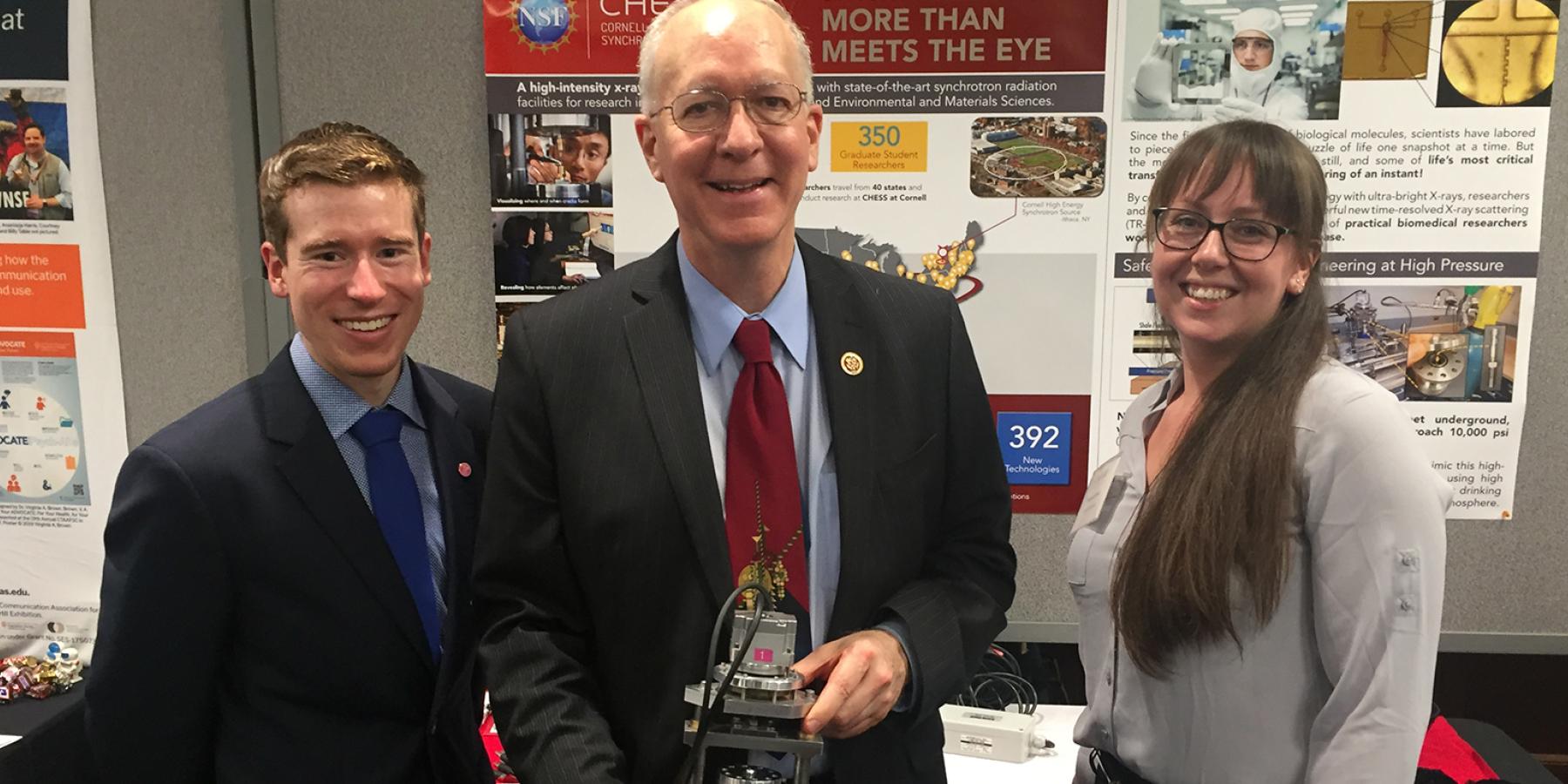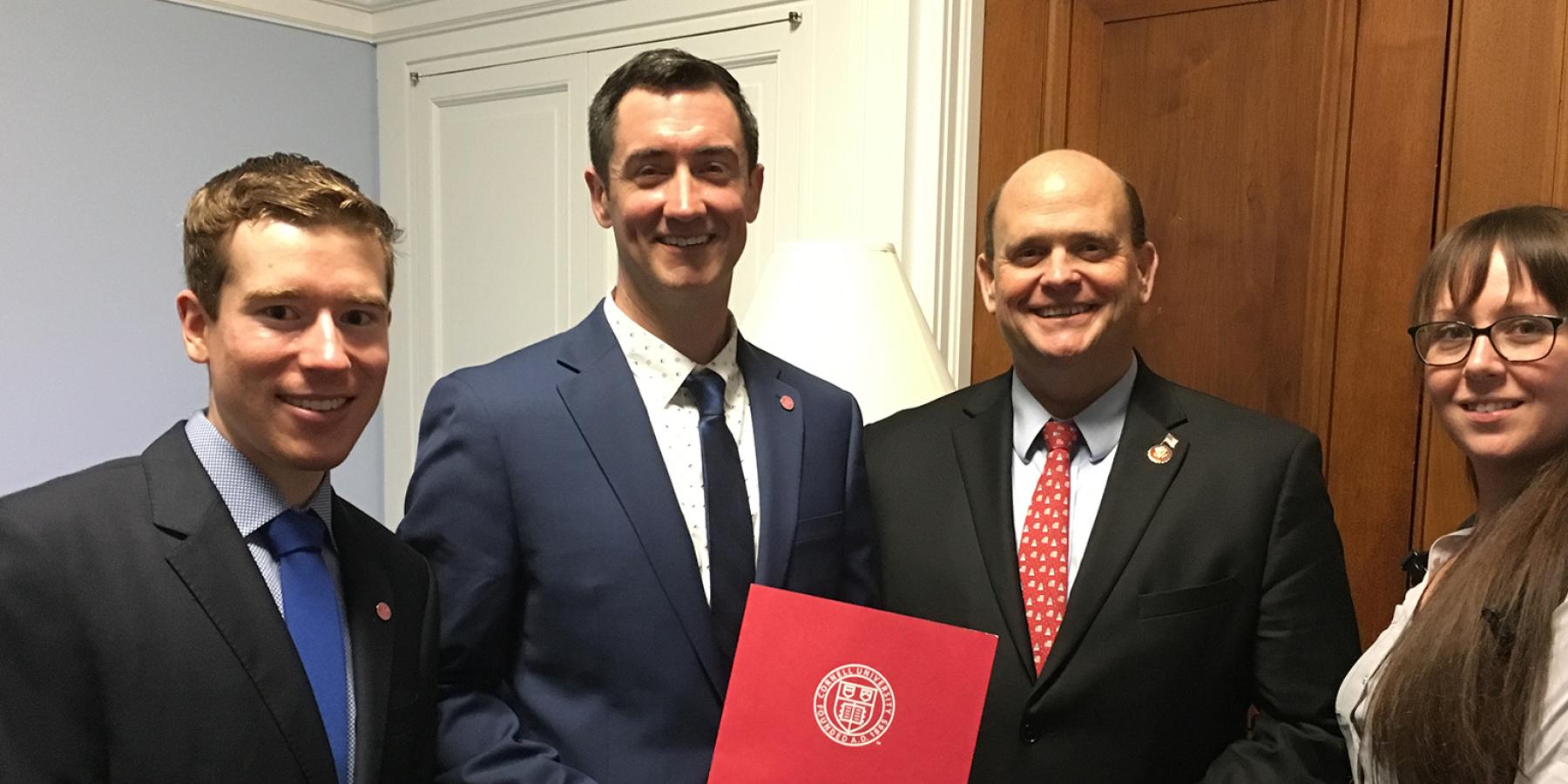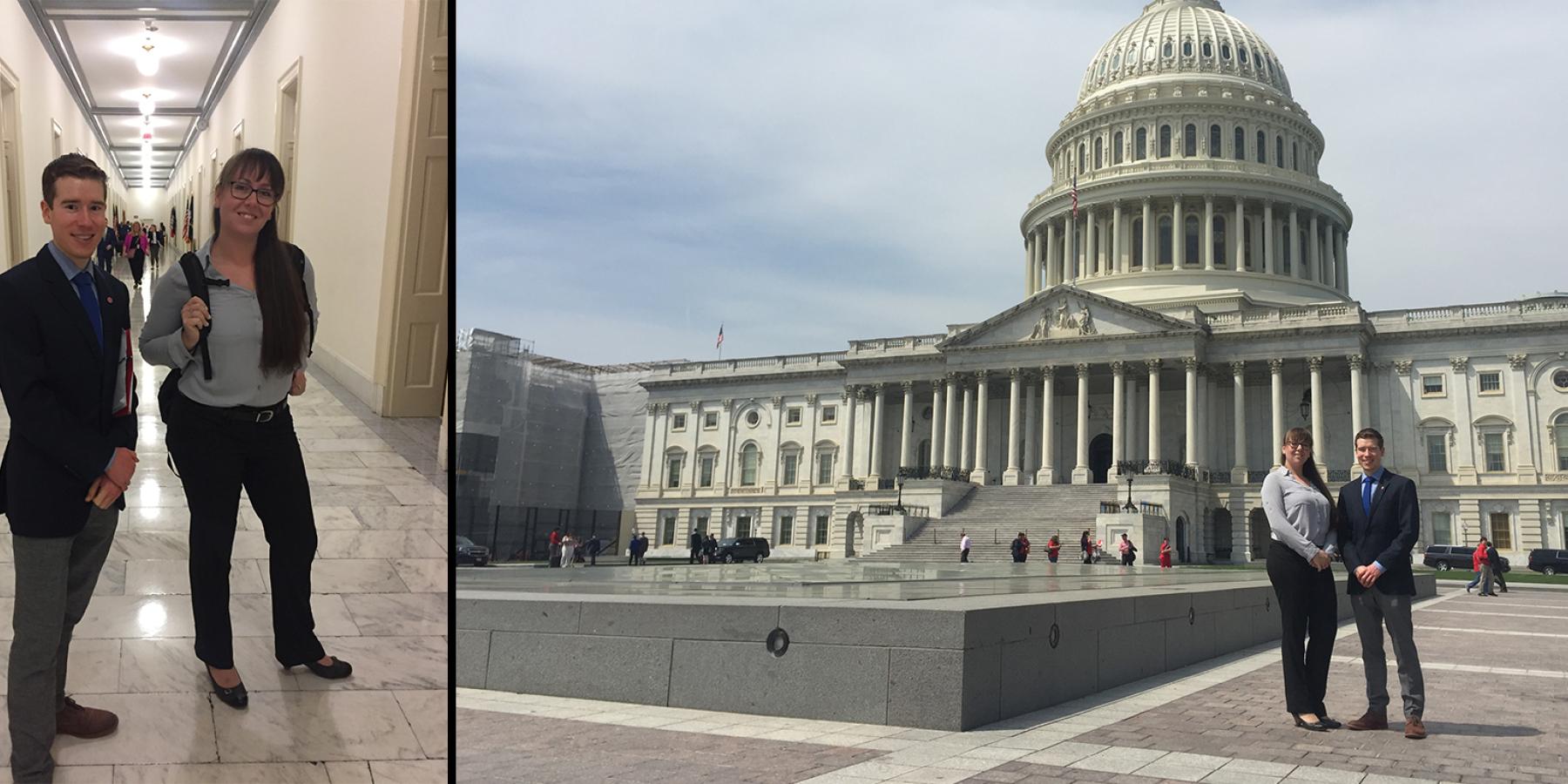Students representing the Cornell High Energy Synchrotron Source made a trip to the nation’s capital to meet with congressional representatives and showcase their crucial involvement at CHESS. Connor Horn, a 3rd year undergraduate, and Gabrielle Illava, graduate student, attended the Coalition for National Science Funding (CNSF) exhibition on April 30th in WashingtonDC.
The day included visits to congressional offices to highlight the educational priority of CHESS and to discuss the importance of scientific funding through the congressional budget.
CNSF has recently sent a letter to congress, urging that they support the coalition’s goal of increasing the national investment in the National Science Foundation's research and education programs. In the letter, CNSF states that “these programs increase and develop the knowledge base needed for pushing the frontiers of science, mathematics and engineering disciplines, contribute to the development of the future science and technology workforce, underpin new fields of inquiry, and promote interdisciplinary research and education, all of which facilitate technological innovation.”
During the day at the capital, both Connor and Gabrielle were able to personify this statement by meeting with staffers in the halls of congress, demonstrating that funding for the NSF is an investment in the nation’s scientific future.
"There are so many motivated scientists in my generation, and to play even the smallest role in directing the gaze of national politics onto the work that we are doing and aspire to do is quite an honor," says Connor Horn. "It was a humbling experience stand among people associated with a wide variety of discretionary national interests all competing for the funds parceled out by congress."
These in-person visits with policymakers also offered a rare opportunity for the students to practice communicating their science.
“At first, I was quite nervous to be meeting with congressional representatives,” says Gabrielle Illava, a Cornell Graduate student and former SRCCS student at CHESS, “However, everyone was extremely kind and enthusiastic about science! It was very heartening to see that the congressional offices that we met with strongly agreed on the importance of science funding. Overall it was an incredible experience and I feel lucky to have been able to participate,” she says.
The kind of fundamental science that we do at CHESS is not a large fraction of national spending, yet the research we do is incredibly important for the country, and it was our job to express that to lawmakers as best we could.
While most visits were with the staffers of the representatives, there were a few spontaneous encounters with the representatives themselves.
“The highlight of the trip for me was our impromptu meeting with Congressman Bill Foster from Illinois,” says Gabrielle. “We could talk real science and he was very engaging.”
Congressman Fosteris the only PhD physicist in Congress, his previous career led him through 22 years of performing high energy particle physics research a Fermilab. As one can imagine, he is a clear supporter of the National Science Foundation.
Foster is also the representative from Connor Horn’s hometown district, near the Advanced Photon Source. “I was not expecting to be able to meet with and discuss X-ray science with a U.S. representative,” says Connor. “We were able to spend about 15 minutes talking about our projects at CHESS, and he (Foster) was genuinely interested in our work at Cornell”
“Through this experience I feel much more comfortable with reaching out to our representatives to discuss issues that are important to me,” says Gabrielle. “I have seen the humanity behind the political offices and can tell that the people we met truly care about the people they represent, and for the advancement of science. It was a wonderful experience and I am truly grateful to the Cornell office in DC and to the representatives for making time to meet with us.”
The Coalition for National Science Funding (CNSF) is an alliance of over 130 professional organizations, universities and businesses united by a concern for the future vitality of the national science, mathematics, and engineering enterprise. CNSF supports the goal of increasing the national investment in the National Science Foundation's research and education programs in response to the unprecedented scientific, technological and economic opportunities facing the United States.
